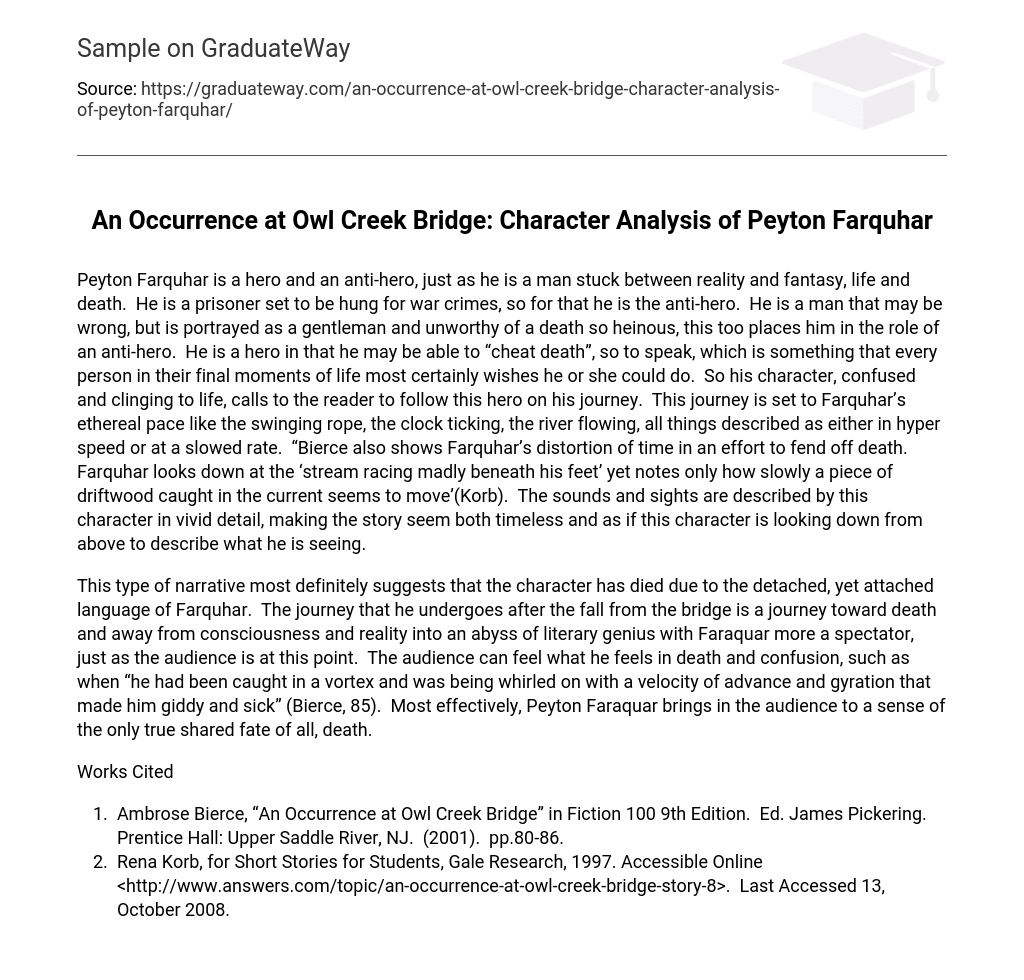Peyton Farquhar is a hero and an anti-hero, just as he is a man stuck between reality and fantasy, life and death. He is a prisoner set to be hung for war crimes, so for that he is the anti-hero. He is a man that may be wrong, but is portrayed as a gentleman and unworthy of a death so heinous, this too places him in the role of an anti-hero. He is a hero in that he may be able to “cheat death”, so to speak, which is something that every person in their final moments of life most certainly wishes he or she could do. So his character, confused and clinging to life, calls to the reader to follow this hero on his journey. This journey is set to Farquhar’s ethereal pace like the swinging rope, the clock ticking, the river flowing, all things described as either in hyper speed or at a slowed rate. “Bierce also shows Farquhar’s distortion of time in an effort to fend off death. Farquhar looks down at the ‘stream racing madly beneath his feet’ yet notes only how slowly a piece of driftwood caught in the current seems to move’(Korb). The sounds and sights are described by this character in vivid detail, making the story seem both timeless and as if this character is looking down from above to describe what he is seeing.
This type of narrative most definitely suggests that the character has died due to the detached, yet attached language of Farquhar. The journey that he undergoes after the fall from the bridge is a journey toward death and away from consciousness and reality into an abyss of literary genius with Faraquar more a spectator, just as the audience is at this point. The audience can feel what he feels in death and confusion, such as when “he had been caught in a vortex and was being whirled on with a velocity of advance and gyration that made him giddy and sick” (Bierce, 85). Most effectively, Peyton Faraquar brings in the audience to a sense of the only true shared fate of all, death.
Works Cited
- Ambrose Bierce, “An Occurrence at Owl Creek Bridge” in Fiction 100 9th Edition. Ed. James Pickering. Prentice Hall: Upper Saddle River, NJ. (2001). pp.80-86.
- Rena Korb, for Short Stories for Students, Gale Research, 1997. Accessible Online <http://www.answers.com/topic/an-occurrence-at-owl-creek-bridge-story-8>. Last Accessed 13, October 2008.





